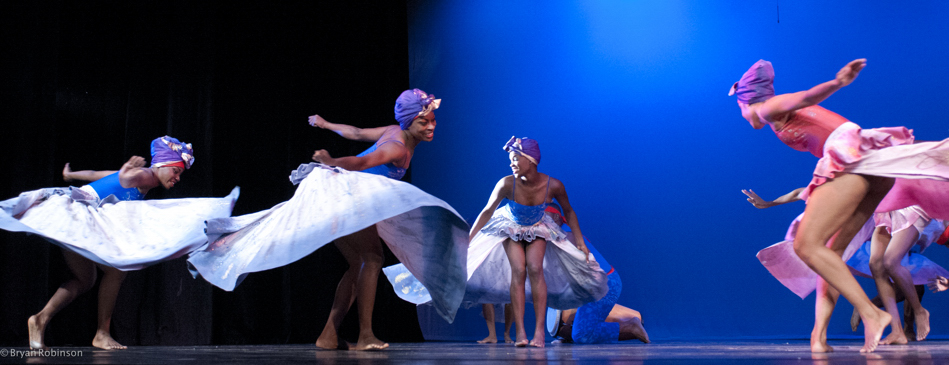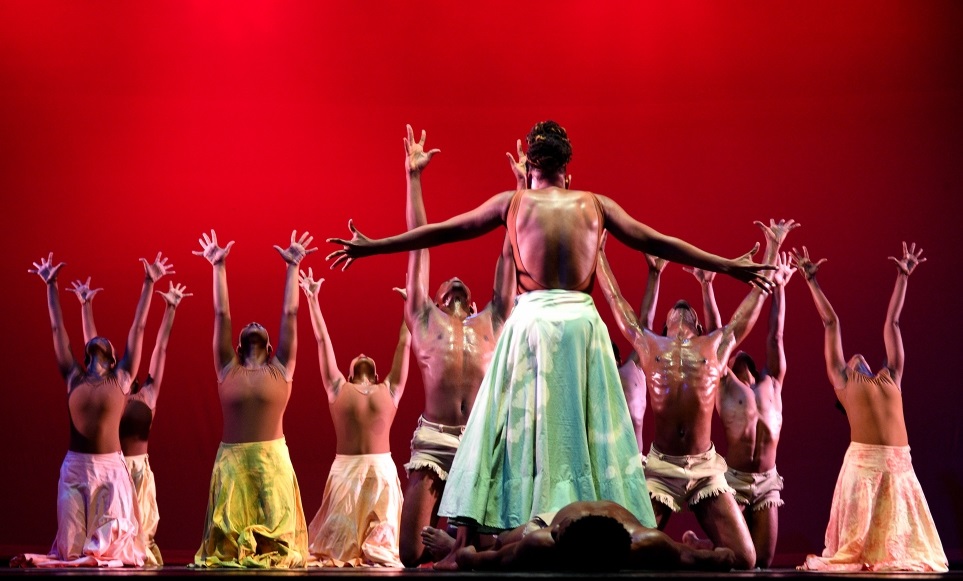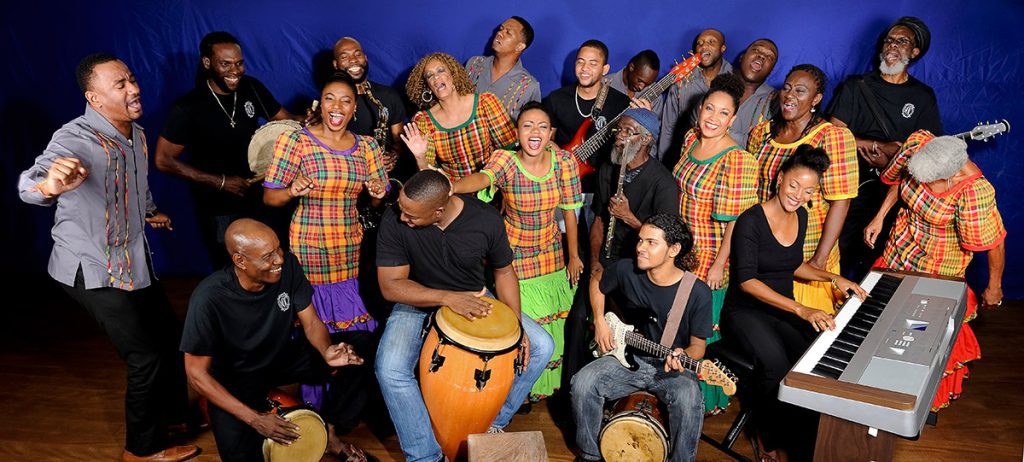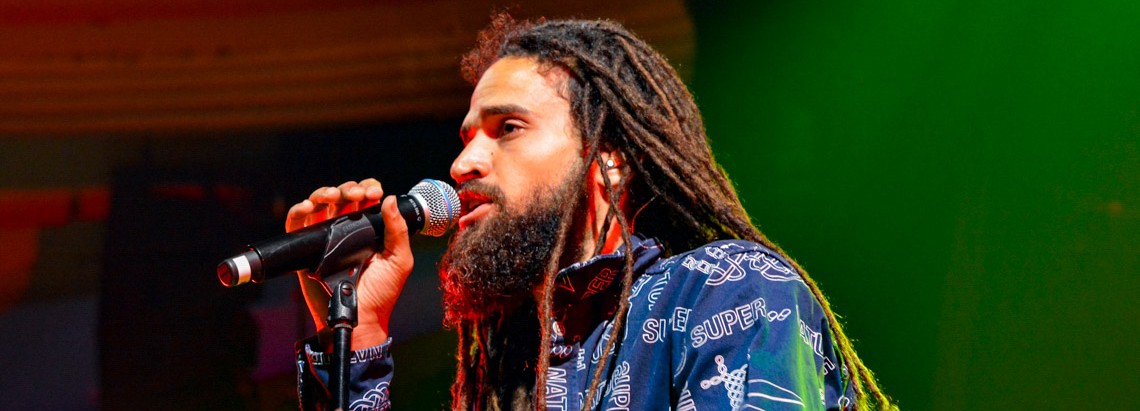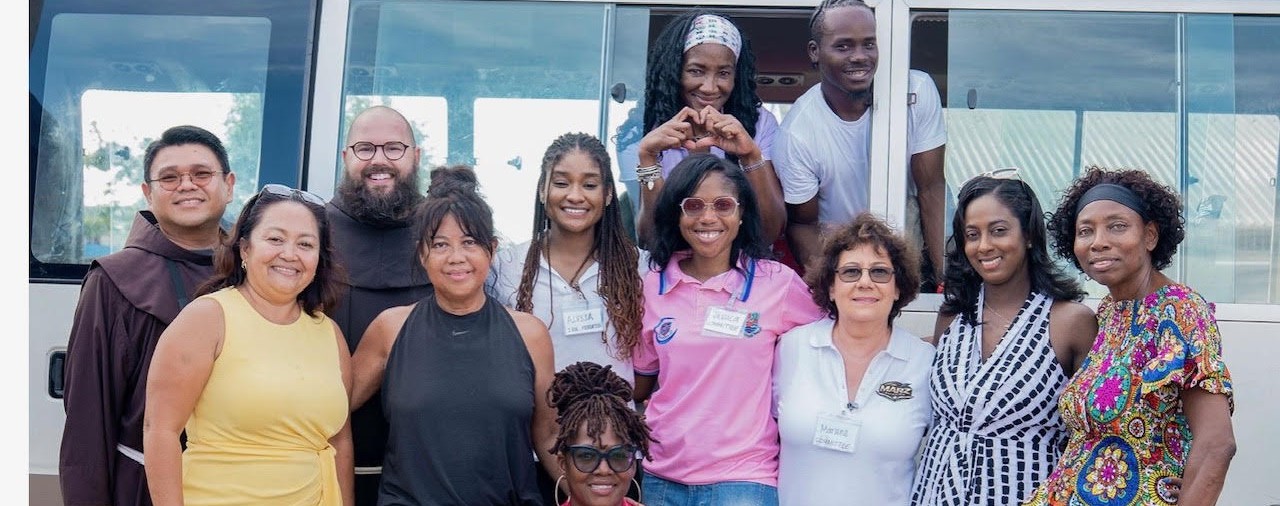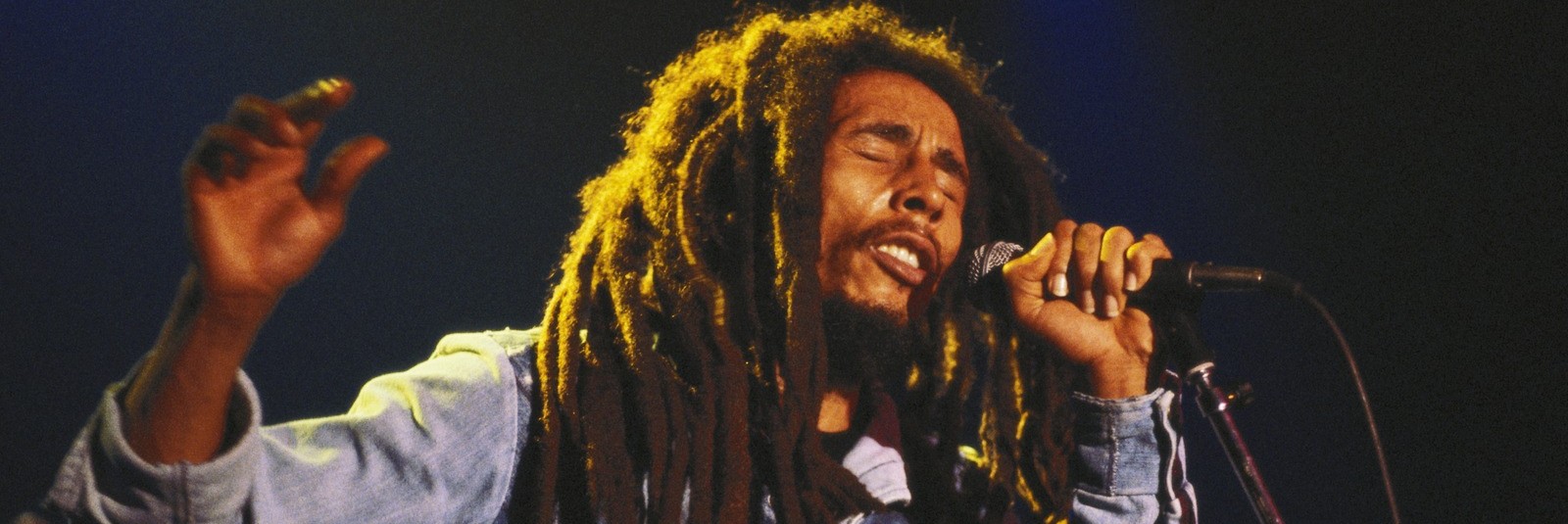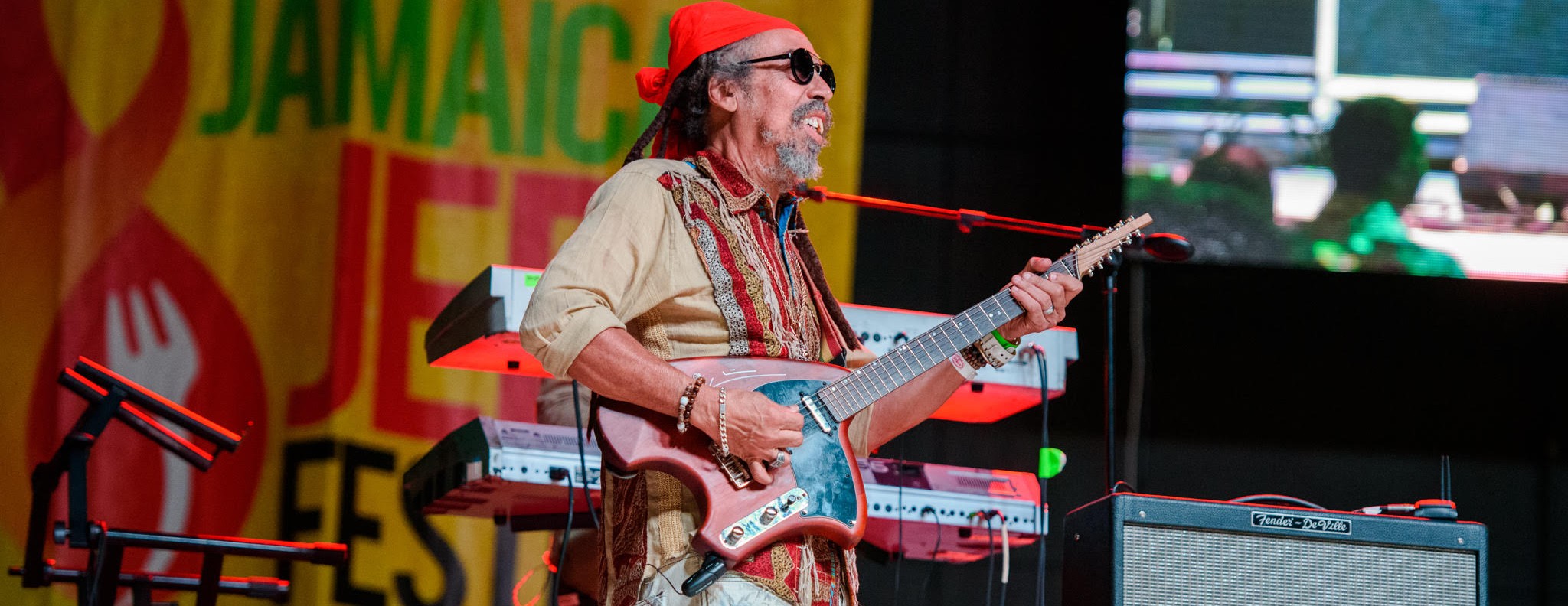The acclaim enjoyed by Jamaica’s National Dance Theatre Company (NDTC) ought not to seem surprising to those who have come to admire the punching power of this small Caribbean nation. Jamaicans have repeatedly captured global attention for disproportionately large performances on several of the world’s stages and the NDTC’s achievement in dance complements those achieved in music, sports, cinema and literature.
Audiences in South Florida will get an opportunity to experience the magic of NDTC in two Gala Performances on Saturday, October 1 at the South Miami Dade Cultural Arts Center (SMDCAC) and Sunday, October 2 at the Miramar Cultural Center. The Miramar performance is sold-out, but tickets are available for the performance at SMDCAC.
Formed in 1962, the year in which Jamaica claimed its independence, the volunteer members of the company, tapped into their cultural heritage and indigenous traditions to create and perform works of a high standard that helped the Jamaican public to better appreciate the art of dance. In doing so they astounded the world.
It took visionary leadership to assemble this disparate group of people from various walks of life to come together, without praise or compensation, to forge ahead to create what the NDTC is today. Drawing on earlier work in dance in Jamaica by Ivy Baxter, Rex Nettleford and co-founder Eddie Thomas harnessed the prevailing nation-building passion to form the NDTC.
Of course, it was neither easy nor straightforward to forge a new aesthetic in a “high art” medium by drawing on sources previously regarded with near disdain. As Nettleford wrote in his 1985 book Dance Jamaica, “ Ivy Baxter was not daunted by such difficulties and even before she made an intensive study of the gestures and habits of the people, she surveyed the immediate environment and began to create dances in this spirit of Jamaican realities, drawing on the stories and folk songs as well as street gestures and the life in the marketplace”.
Sixty years later, this group of unpaid dancers, musicians and technicians, who all have occupations as students, teachers, doctors, lawyers, civil servants, farmers, and bankers, among others have made over 120 overseas tours performing to wide acclaim in the United States, Canada, the United Kingdom, Finland, Germany, Australia, Russia (the old USSR), Venezuela, Panama, Costa Rica, Puerto Rico, Cuba, Martinique, Guyana, Grenada, Barbados, Trinidad & Tobago, St. Kits, Antigua, St. Thomas, St. Croix (US Virgin Islands), The Bahamas and Bermuda.
Like America’s blues and jazz and several other significant cultural forms in the western hemisphere, the repertoire of the NDTC successfully melds African and European traditions to create something completely new, vibrant and absolutely valid. Jamaica proved to be fertile ground from which to harvest traditional dance. Cheryl Ryman, a former principal dancer with the company identified 39 traditional dances, religious and secular, in her research. The NDTC has tapped these roots with great success, clearly evidenced by three pieces that have become standards of the company’s repertoire: Kumina, Mayal and Gerrehbenta.
A Dancing Times writer described the effect in reviewing a UK 2001 tour: “… the cultures of Africa and of Europe have come together in a unique way on this island. African dancers chose to celebrate pelvic movements because the center of the body — from which further life springs — is sacred. European dancers in contrast, chose under the influence of Christianity to censure pelvic movement and to celebrate instead bodily composure and possibilities of flowing peripheral movements and extended footwork. Jamaican dancers who have worked to absorb both traditions, can ripple like snakes and promenade like flamingoes. Their dances can vibrate with power and float with decorum… Dance companies capable of delivering such life-informing and life-embracing messages are rare”.
The company includes an accomplished group of singers, whose repertoire also taps traditional music collected from the field to form the basis of many of the scores used by the choreographers. Similarly, there is a heavy reliance on traditional instruments to augment musical scores.
Both performances in Florida are being presented by the Louise Bennett-Coverley Heritage Council and under the patronage of Jamaica’s Consul General, Oliver Mair. The Louise Bennett-Coverley Heritage Council works to preserve the memory and advance the work of Jamaican folklorist, poet, thespian and cultural icon, Louise Bennett-Coverley, a founding patron of the NDTC and a figure so widely loved and known by generations of her people she is simply known by all as “Miss Lou”.
For tickets and further information visit www.louisebennettheritage.com
